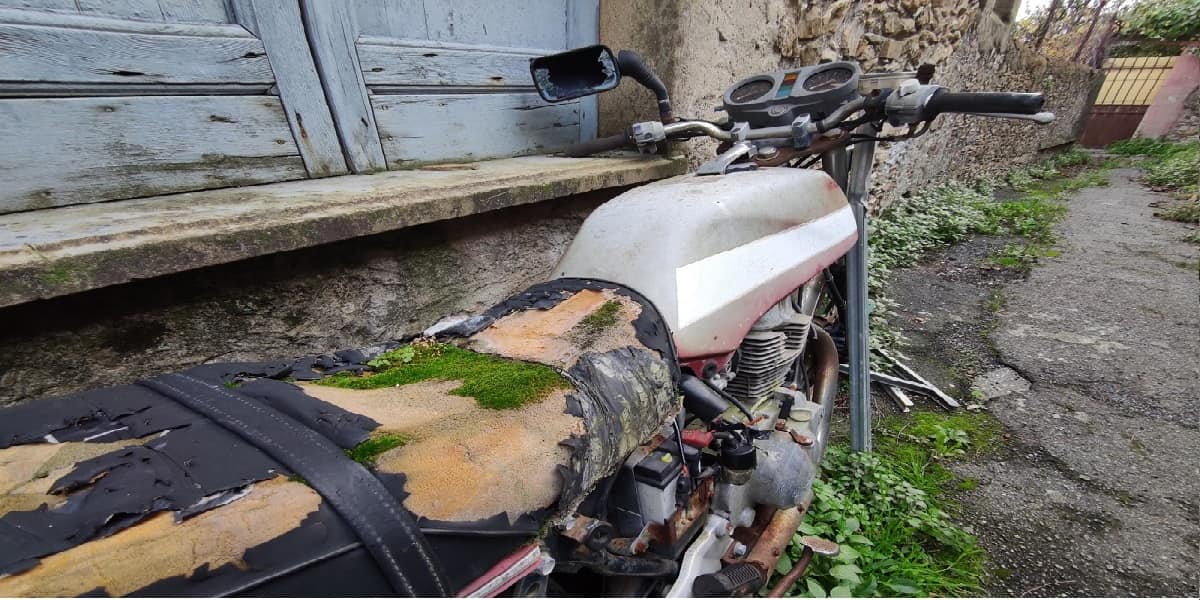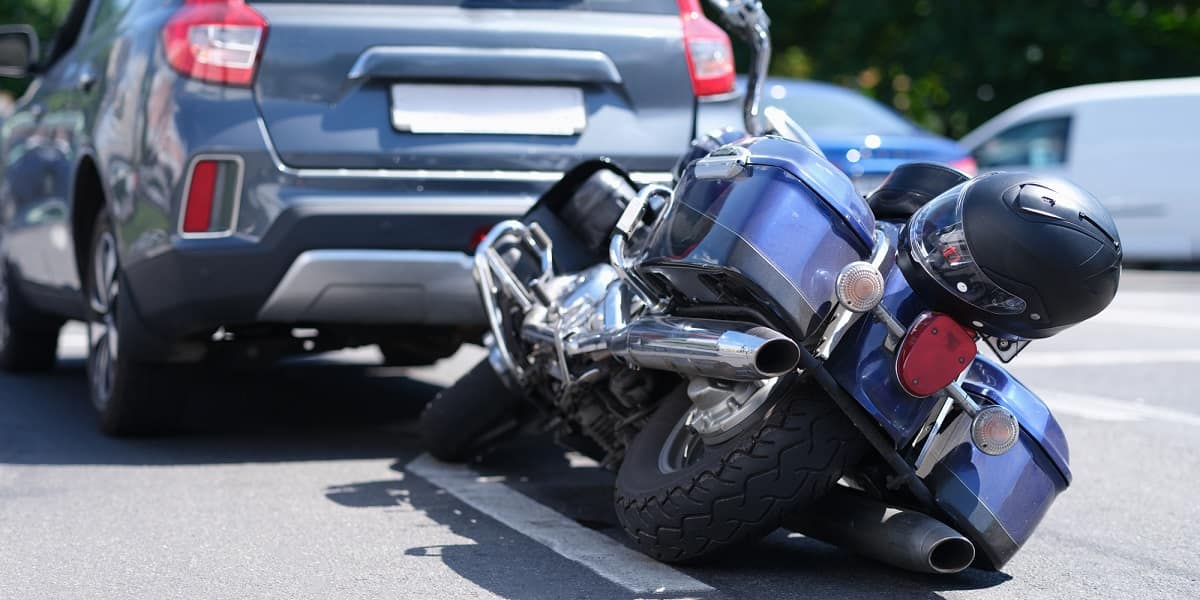Maybe you are getting back into motorcycling after a few years away or are considering adding a second bike to your garage. Sometimes buying a used motorcycle makes more sense than buying a new one.
Buying used brings different challenges and questions. You have to ask yourself some questions, like how much to spend and what type of motorcycle you want.
The other questions can save you money, headaches, and pain. Here are the top 10 questions to ask when buying a used motorcycle.
Mileage?

Unlike cars, high mileage on a motorcycle is very dependent on the type of bike.
A sportbike is designed to wring the maximum power from the engine, it revs higher and is built with lighter components to save weight on the track.
On the opposite end of the spectrum, a Goldwing is barely considered broken in at 25,000 miles. Those bikes are regularly seen on the road with over 150,000 miles on them and are STILL a decent deal!
However, low mileage bikes have the opposite problem.
A 10-year-old bike with 5,000 miles in Florida has only been ridden an average of fewer than 42 miles per month. You would adjust based on the length of the local riding season.
The point is, a bike that has spent most of its life sitting in the garage has different issues than one that has been ridden hard. Tires rot and develop flat spots if left sitting for long periods. Fluids degrade and gum up the engine or fail to perform adequately in the case of brake fluid.
Can you provide maintenance records?
Just like cars, motorcycles need to be appropriately maintained to operate safely.
Unlike cars, if a motorcycle breaks down, you could be in VERY real danger depending on the situation.
A well-maintained bike is a safer motorcycle and one that will last longer.
Mechanically inclined owners who enjoy wrenching their bikes will keep records and receipts, too, so don’t let that be an excuse.
Clear Title? Salvage?
This one can be a little tricky. If the current owner hasn’t paid off the bike, the financing company or bank is still a partial owner of the motorcycle. While a deal could still be done, involving a bank and waiting for the title may not be worth the effort.
The other slightly odd thing can be if the motorcycle has a title marked “SALVAGE”.
Depending on the bike, this may not be a bad thing.
Generally, salvage titles are for motorcycles (or cars) that have been in an accident or otherwise damaged beyond a certain percentage of the vehicle’s fair market value.
On a motorcycle, it’s usually that the insurance company declared it “totaled,” but the owner decided it was worth it to repair the bike. So look out for the extensive repairs and unrepaired things like cracks in the frame.
Can I see the bike cold?

A motorcycle that starts easily and with little or no smoke from the exhaust has all the signs of being in good shape.
But only on a cold start!
Once the engine warms up and the oil starts circulating, subsequent starts will be smoother and easier. A common practice with older bikes is to start it and run a few minutes before showing it to a prospective buyer.
Check the VIN
Once you see the bike, check the Vehicle Identification Number stamped on the front of the frame. Ensure that it matches the title and doesn’t look restamped or tampered with.
You can also check the motorcycles’ history by looking up the VIN online for a small fee – typically less than $20.
Read: Carfax for motorcycles
Has the bike ever been dropped or wrecked?

This is an obvious question, but some sellers are less than honest about tip-overs and crashes. Telltale signs are:
- Scuffs on the ends of the handlebars
- Bent or curled levers
- Scrapes on the crash bars
- Aftermarket parts or components that do not match
Just because a bike has been dropped or tipped over doesn’t mean much on a big bagger or touring bike.
Almost everyone has tipped one of those big beasts over with only a little cosmetic damage to show for it. The key here is if the seller will admit to it.
Did you buy the bike new? How long have you had it?
While you want to quiz the seller on their maintenance practices, things get more complicated with multiple owners.
Did the previous owners supply maintenance records? If you are mechanically inclined and enjoy fixing bikes, this may be ok. Otherwise, beware of multi-owner bikes. There is too much history you can’t know. Of course, if the deal is good enough, you may overlook this.
Why are you selling it?
This is a big one, especially if the age/mileage of the bike does not line up with the asking price.
The best answer is that the seller bought a new bike and got rid of their old one. Other reasons that come up range from the good like a new baby to the bad, like a divorce.
There really is no wrong answer, and it’s good information to have.
What aftermarket parts are on it? Who installed them?
While cool aftermarket parts can enhance the appeal of a motorcycle, they do not add to the value a great deal.
Certainly, sellers will want to recoup what they put into parts, but don’t let that sway you unless it’s a part that you would have immediately purchased if it wasn’t on the bike already.
Be careful of electrical parts installed by the owner. Sloppy wiring can cause endless headaches down the line. If there are a lot of addons, consider having a professional mechanic inspect the bike before you buy it.
What accessories are included?
If they are selling the bike because they do not ride any longer, you may be able to get a good deal on accessories like covers, or even helmets or other gear.
Even if they do not include it with the bike initially, it doesn’t hurt to ask if they would like to sell any accessories or equipment.
Conclusion
Buying a used motorcycle can be a great way to get into riding without going deeply into debt or spending a ton of money.
It can also be a fast way to lose money if the motorcycle needs a lot of repairs that you didn’t count on.
Like anything – keep your eyes open and ask a lot of questions. If you aren’t mechanically inclined, ask a friend who is to go with you.